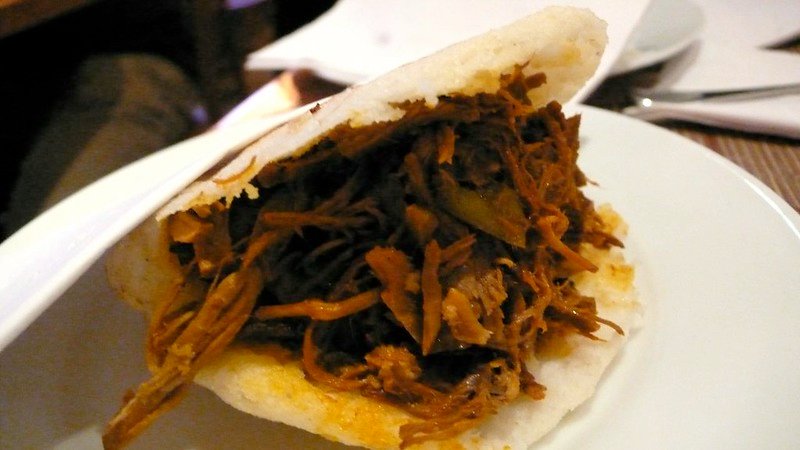Gluten-free diets have gained remarkable popularity in recent years with more and more individuals opting to eliminate gluten from their meals for various health reasons.
Amidst this dietary trend, many are wondering whether the beloved traditional delicacy, arepas, can be safely consumed by those following gluten-free lifestyles.
In this article, we will dive into the delicious and delicate world of arepas and answer the most burning question: Are arepas gluten-free?
Arepas, with their mouth-watering appeal and rich cultural heritage, have captured the hearts and palates of food enthusiasts worldwide.
However, concerns persist about their gluten content and the potential risks they pose for individuals with gluten sensitivities or celiac disease.
In the article below, we aim to shed light on the gluten content of arepas and provide valuable insights for safely navigating the world of arepas for gluten-sensitive individuals.
So buckle up yourself and let’s explore the truth behind the question, Are arepas really gluten-free?
What is arepas?
Arepas are a traditional and beloved food originating from South America, particularly prevalent in countries like Colombia and Venezuela.
These delightful and versatile cornmeal patties are a significant part of the region’s culinary heritage. They can vary in size, thickness, and filling, offering a diverse range of flavors and textures.
Arepas can be enjoyed in a myriad of ways, as they can be split open and filled with various savory or sweet fillings, such as cheese, meats, avocado, beans, or even jam and chocolate.
Their versatility, delicious taste, and ability to be both a comforting meal and a satisfying snack have made arepas a beloved and iconic part of South American cuisine, cherished not only within their region of origin but also appreciated by food enthusiasts worldwide.
What are arepas made of?
Arepas are made primarily from pre-cooked cornmeal, which is also known as masarepa or harina de maíz precocida. This cornmeal is made by soaking dried corn kernels in an alkaline solution, then grinding and drying them to create a fine flour.
The addition of water and a pinch of salt forms a dough, which is then shaped into circular discs of various sizes and thicknesses. These dough discs are cooked on a griddle or skillet until they develop a crispy outer crust and a soft, doughy interior.
Arepas can be enjoyed as plain, salted versions, or they can be stuffed with a wide range of fillings, such as cheese, shredded meat, avocado, black beans, and more, depending on personal preferences and regional variations.
The simplicity of their ingredients allows for endless possibilities in creating a delightful and flavorful dish loved by many.
Are arepas gluten-free?
Yes, traditional arepas are generally considered gluten-free. Corn is a naturally gluten-free ingredient and the main ingredient in arepas is pre-cooked cornmeal (masarepa) which also does not contain gluten.
This makes arepas an excellent option for those with gluten sensitivities or celiac disease as they can indulge in this delectable South American dish without worrying about gluten-related health concerns.
However, it is crucial to be cautious when consuming commercially prepared or packaged arepas as some variations may incorporate additional ingredients that contain gluten or may be subject to cross-contamination during preparation.
Are restaurant arepas gluten free?
Well, the answer is simple. Restaurant arepas are gluten-free or not totally depends on how they are prepared and the specific ingredients used by each restaurant.
Some restaurants offer gluten-free arepas as part of their menu, specifically catering to customers with gluten sensitivities or celiac disease.
These gluten-free arepas are made using dedicated gluten-free ingredients and separate cooking equipment to minimize cross-contamination risks.
However, in other restaurants, traditional arepas may be prepared using regular ingredients that contain gluten and cooked on shared surfaces, making them unsuitable for individuals following a gluten-free diet.
That is why, it is crucial for people with gluten sensitivities to inquire about gluten-free options and be vigilant about the potential for cross-contamination to ensure a safe dining experience.
What to eat arepas with?
Arepas are incredibly versatile and can be paired with a wide variety of delicious fillings and accompaniments. Here are some popular options to eat with arepas:
- Shredded Meat
- Black Beans
- Guacamole
- Fried Plantains
- Salsa
- Venezuelan Reina Pepiada
- Scrambled Eggs
- Colombian Hogao
- Hummus
- Chorizo
Conclusion
Arepas offer a delightful and versatile culinary experience, especially for those with gluten sensitivities or celiac disease, as traditional arepas made from cornmeal are gluten-free. They can be enjoyed with a plethora of delicious fillings and toppings, catering to various tastes and dietary preferences.
Patti began her writing career as a staff writer for the South Florida Sun Sentinel. Still based in Florida, Patti serves as editor for Fort Lauderdale on the Cheap. She regularly writes about environmental, home improvement, education, recycling, art, architecture, wildlife, travel and pet topics.

